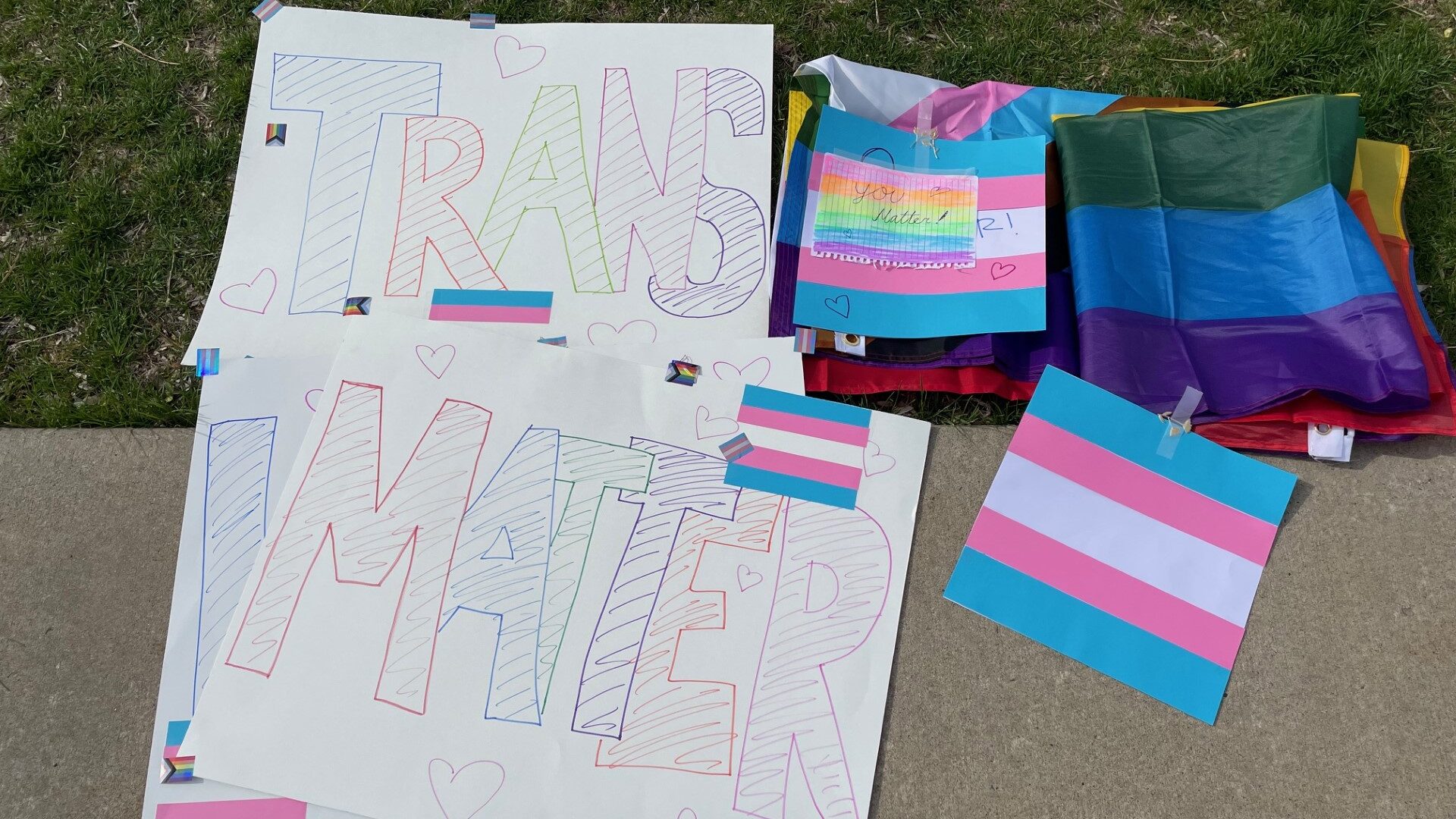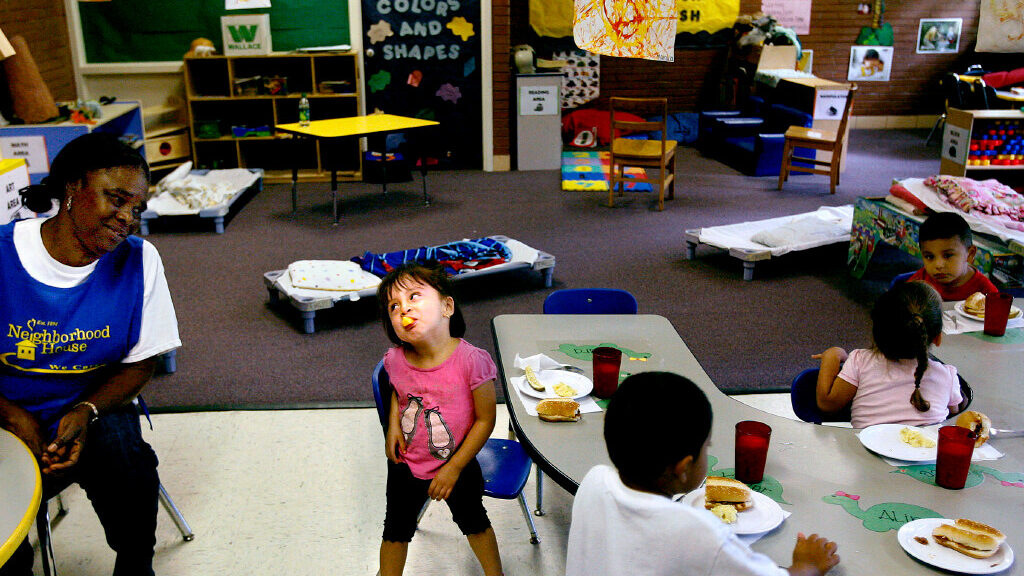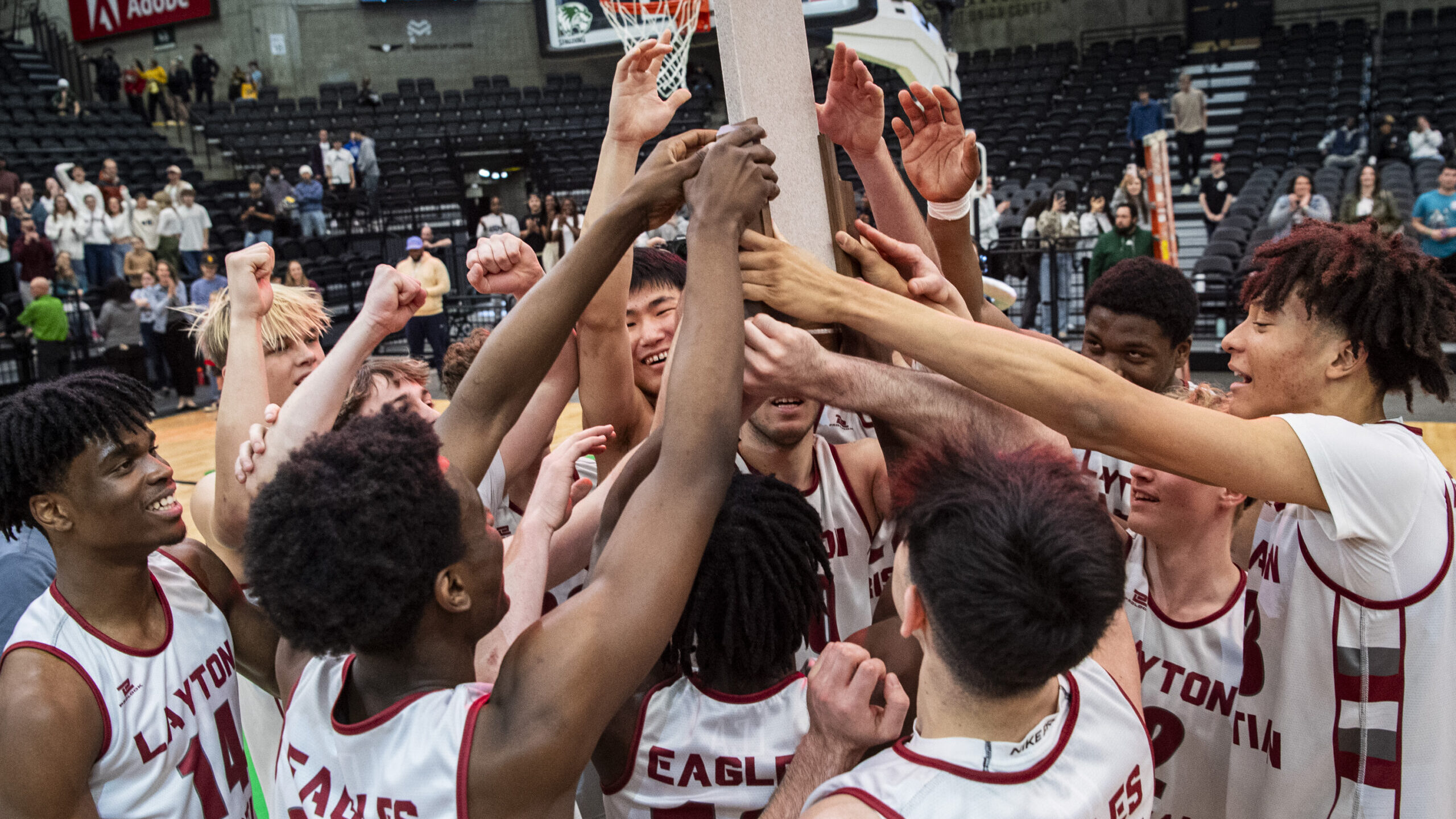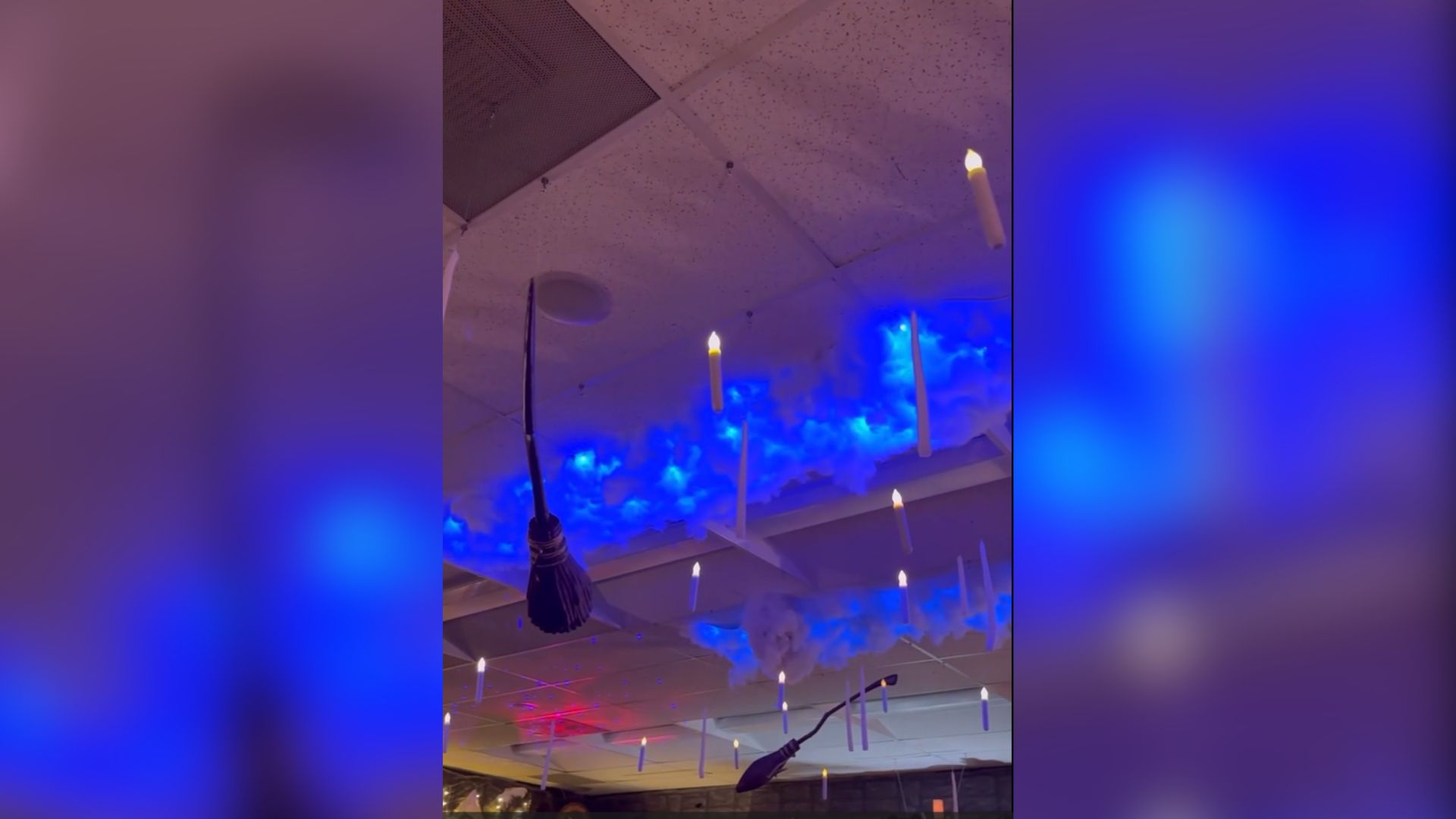What to watch for as the President’s student loan debt relief plan goes to court
Feb 28, 2023, 8:29 AM | Updated: Mar 1, 2023, 2:39 pm
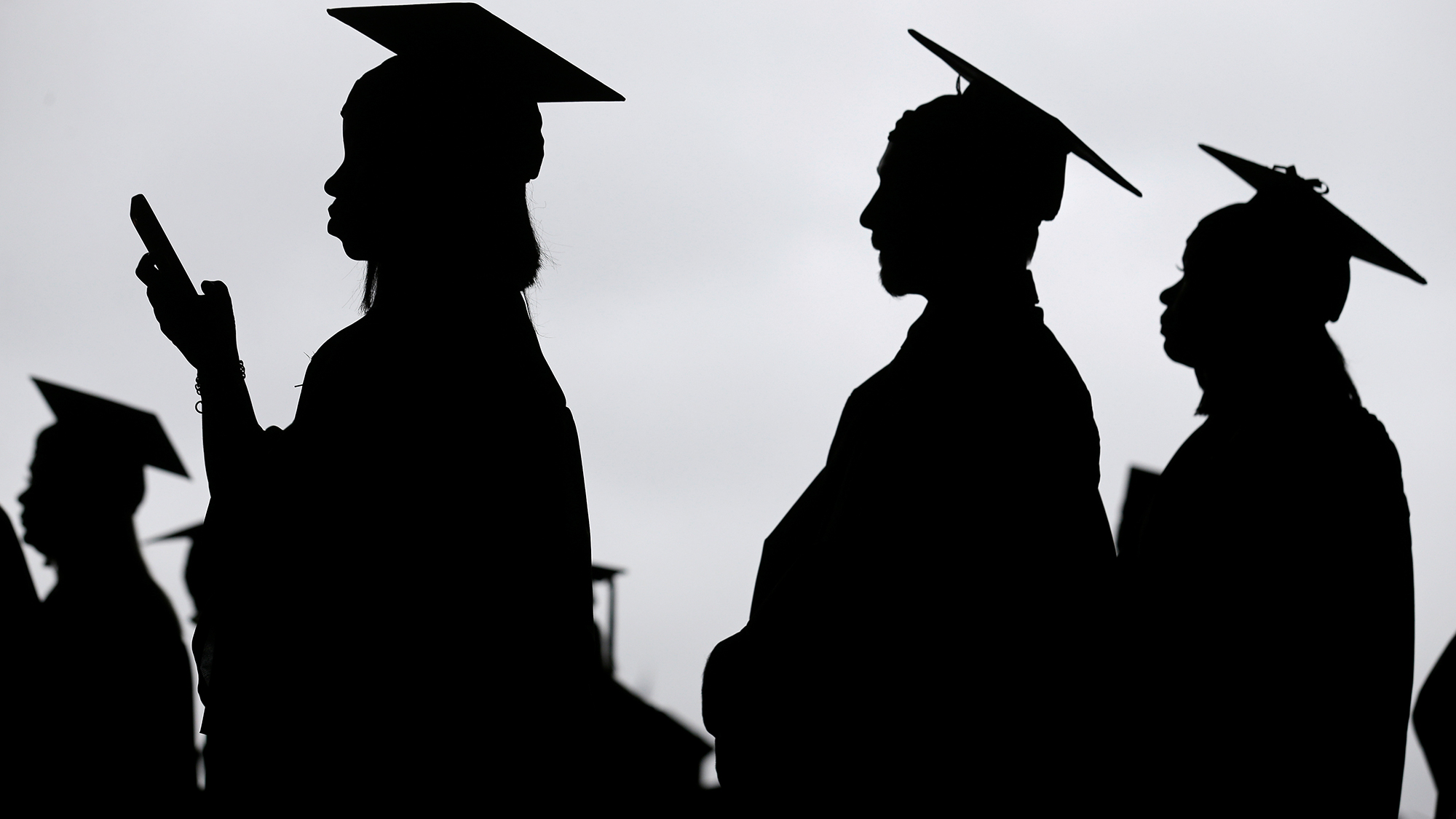
FILE - New graduates line up before the start of a community college commencement in East Rutherford, N.J., May 17, 2018. A federal judge in St. Louis on Thursday, Oct. 20, 2022, dismissed an effort by six Republican-led states to block the Biden administration's plan to forgive student loan debt for tens of millions of Americans. (AP Photo/Seth Wenig, File)
(AP Photo/Seth Wenig, File)
(CNN) — The Supreme Court on Tuesday will take up two challenges to President Joe Biden’s student loan forgiveness program — an initiative aimed at providing targeted debt relief to millions of student-loan borrowers — that has so far been stalled by legal challenges.
Republican-led states and conservatives challenging the program say it amounts to an unlawful attempt to erase an estimated $430 billion of federal student loan debt under the guise of the pandemic.
Related: Utah leaders respond to President Biden’s student loan forgiveness plan
At the heart of the case is the Department of Education’s authority to forgive the loans. Several of the conservative justices have signaled in recent years that agencies — with no direct accountability to the public — have become too powerful, upsetting the separation of powers. They have moved to cut back on the so-called administrative state.
In 2021, for instance, the court invalidated the Biden administration’s Covid-19-related eviction moratorium issued by the US Centers for Disease Control and Prevention holding that such a program needs to be specifically authorized by Congress. In 2022, the court blocked a nationwide vaccine or testing mandate for large businesses, sending a clear message that the Occupational Safety and Health Administration had overstepped its authority.
Tuesday’s cases will also highlight an important threshold question that could block the court from reaching the merits of the dispute: whether the parties behind the challenge have the legal right, or “standing,” necessary to bring suit.
Payments paused
In 2020, as the Covid pandemic began, the Department of Education paused payments and interest in accrual on student loans to help those struggling financially. As the pandemic progressed, both the Trump and the Biden administrations further extended the protections.
By 2022, however, the Biden administration’s secretary of Education, Miguel Cardona, determined that the across-the-board pause on all payments should come to an end. Fearing that the resumption of payments would put many lower-income borrowers at heightened risk of loan delinquency, the administration said it would offer relief up to $20,000 to approximately 40 million working and middle-class borrowers.
The plan, Biden said, was meant to “provide more breathing room for people so they have less burden by student debt.”
The initiative came under immediate attack. A district court blocked the program citing the so-called major questions doctrine. Under the doctrine, federal agencies cannot regulate matters of “vast economic and political significance” without clear authorization from Congress.
(Last June, the Supreme Court emboldened supporters of the doctrine by citing it in a 6-3 decision that curbed the Environmental Protection Agency’s ability to broadly regulate carbon emissions from existing power plants.)
As other challenges to the student loan program percolated, the Biden administration asked the Supreme Court to step in and allow the program to go into effect pending appeal.
The justices declined to do so, but they agreed to hear two cases on an expedited basis. The first dispute, Biden v. Nebraska, pits the administration against a group of Republican-led states. The second, Department of Education v. Brown, was initially brought by Myra Brown and Alexander Taylor, two individuals who did not qualify for the program and argue the government failed to follow proper rulemaking process when putting it in place.
As for the payment obligations, they were set to resume last January, but the president issued an extension due to the fact that his loan forgiveness program was stalled in court.
As things stand, the payment pause will last until 60 days after the litigation over the loan forgiveness program is resolved. If the program has not been implemented and the litigation has not been resolved by June 30, payment will resume 60 days after that, according to the government.
What the Biden administration is saying
At the Supreme Court, the Biden administration argues that the secretary of education had the clear authority to provide the relief to borrowers making less than $125,000 per year ($250,000 for households) in 2020 or 2021 in order to protect them from financial harms brought on by the pandemic such as the inability to buy food or make rent or mortgage payments.
In court papers, Solicitor General Elizabeth Prelogar stressed that the Higher Education Relief Opportunities for Students Act of 2003 — known as the HEROES ACT — provides the government with the authority to offer the relief. Under the law, passed to help active-duty military in the wake of the September 11, 2001, terrorist attacks, the government says the secretary of education has the authority to act in a national emergency to make sure borrowers are not left worse off with respect to their loans than they were before the emergency.
She warned the justices that ending the pause in payments without providing additional relief for lower-income borrowers would “cause delinquency and default rates to spike above pre-pandemic levels.”
Prelogar rejected claims that the Department of Education had exceeded its authority under the major questions doctrine.
“This is not a case where the agency relied on statutory language that is vague, cryptic, ancillary, or modest,” she said, noting that the grant of authority is “central” to the HEROES ACT.
In addition, she said that neither the states nor the two individual plaintiffs behind the challenges have the standing to file suit. She warned that if the justices held otherwise, it could have “startling implications” going forward.
“Virtually all federal actions — from prosecuting crime to imposing taxes to managing property — have some incidental effects on state finances,” she said.
What the states are saying
As for the states, Nebraska Attorney General Michael T. Hilgers, who is also representing Missouri, Arkansas, Iowa, Kansas and South Carolina, stressed that the Biden administration exceeded its authority by using the pandemic as a pretext to mask the true goal of fulfilling a campaign promise to erase student-loan debt.
“Canceling hundreds of billions of dollars in student loans — through a decree that extends to nearly all borrowers — is a breathtaking assertion of power and a matter of great economic and political significance,” triggering the major questions doctrine, Hilgers told the court. Such a cancellation power “is the type of major question that courts presume Congress reserves for itself.”
Hilgers rejected the government’s contention that the states can’t show the harm necessary to get into court. In court papers he put forward multiple theories of standing that mostly revolve around the theory that the states will lose tax revenue.
A federal appeals court focused on one of the states behind the challenge, Missouri, and pointed to a state created entity called Missouri Higher Education Loan Authority (MOHELA) that has contracted with the federal Department of Education to service student loans. The court said that because Mohela will stop receiving servicing fees for loans discharged under the new plan, Mohela won’t be able to fulfill its obligation to contribute a specified amount of money to the state treasury.
The appeals court ruled Mohela is akin to a state entity and therefore said that it satisfied the standing requirement.
Critics of that theory say that Mohela was established with financial and legal independence from the state of Missouri and the vast amount of its funds are segregated from state funds. They believe that for the purpose of the lawsuit, Mohela cannot be considered an “arm of the state.”
The red states are supported by a group of former government officials including former Trump Attorney General William Barr, former Trump White House chief of saff Mick Mulvaney and others who say that Biden should not be able to forgive billions of dollars in student loan debt “owed by 43 million borrowers who financed a college education with the benefit of tax payer-funded loans.”
“This represents one of the largest expenditures in the nation’s history, carried out in the face of clear congressional opposition,” they wrote.


